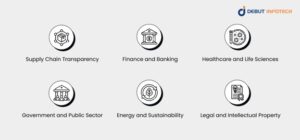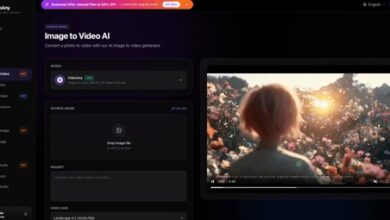The Rising Demand to Hire Blockchain Developers: How Businesses Are Evolving

The drive to hire blockchain developers has gained momentum in the years that have followed, with firms from all industries looking to use decentralized technologies to bring down business processes, data security, and design new digital products. Since blockchain has become one of the key elements of enterprise architecture and is borrowed from niche innovation, the demand for highly qualified blockchain experts is at its maximum. It doesn’t matter whether it’s startups creating token economies or legacy institutions ingraining distributed ledgers into current infrastructure – businesses understand the value of having a blockchain skillset.
This increased interest in blockchain for business is not only technological – it is about achieving competitiveness in a place where trust, openness, and automation are becoming ever so important. In turn, companies are increasingly outsourcing blockchain development to a company or creating software development teams dedicated to creating solutions that can cope with future tasks. In this article, we look at why there is increased demand to hire blockchain developers, how this demand transforms software development, and what businesses should learn to make the right moves.
Why the Demand for Blockchain Developers Is Surging
There are quite a few reasons that make the urge for blockchain talent explode. Blockchain’s potential to address actual world problems is no longer a theory from decentralized finance (DeFi) plasforms to supply chain optimization. According to Statista, at over 1.43 trillion dollars, the enterprise interest in blockchain technology is sizable.
Key drivers of demand include:
- Decentralized ecosystems that allow for trustless data sharing and peer-to-peer transactions.
- Tokenization and NFTs, require backend infrastructure, smart contracts, and robust security.
- Cross-border payments and digital identity, need custom blockchain solutions and regulatory compliance.
- Enterprise blockchain development in healthcare, real estate, logistics, and energy sectors.
All these innovations require expert developers who can work with protocols like Ethereum, Hyperledger, and Solana and who understand how blockchain is changing software development at its core.
Blockchain for Business: Strategic Use Cases

Knowing how to use blockchain for business is no longer an option but a necessity for organizations striving to future-proof their operations. Blockchain technology provides an unrivaled mix of visibility, tamper-proofing, and decentralized management of data. Such basic characteristics make possible multiple use cases that extend well beyond cryptocurrency, particularly in those industries where non-negotiable factors of trustfulness, compliance, and traceability are crucial.
Supply Chain Transparency
In global trade and logistics, blockchain for business revolutionizes supply chain operations. By recording every transaction or movement of goods on an immutable ledger, companies can trace products from origin to end-user. This improves inventory accuracy, ensures regulatory compliance, and reduces the risk of fraud. Food, pharmaceutical, and luxury goods brands use blockchain to verify authenticity and prevent counterfeiting, with smart contracts automatically triggering actions such as payments or shipment releases.
Finance and Banking
Blockchain has been one of the fastest moves in the financial services sector. Besides cryptocurrency, blockchain technology provides real-time transaction settlement, which does not require intermediaries; hence, operation risks are minimized. However, blockchain also simplifies the tokenization of digital assets, cross-border remittance, decentralized finance (DeFi) platform implementation. As regulatory clarity increases, institutions also turn to enterprise blockchain development to provide compliance-ready financial infrastructure.
Healthcare and Life Sciences
Data privacy and security essence is critical in healthcare. Blockchain technology securely and permissioned allows sharing of patient records with care providers, insurers, and researchers, without ceding data ownership for better care coordination. Insurance claims and improvement of clinical trial data administration through Smart contracts can be automated. In addition to tracking the authenticity of medical supplies and vaccines, which emerged as a critical necessity during COVID-19, blockchain can be used.
Government and Public Sector
Governments worldwide are exploring blockchain to enhance transparency and trust in public services. From digital identity verification systems to secure voting platforms, blockchain can eliminate fraud and ensure integrity. Blockchain-based land registries are also gaining traction, offering a transparent way to manage ownership rights and property transfers. These applications require strict governance, robust encryption, and seamless integration with existing legacy systems—making the need to hire blockchain developers even more crucial.
Energy and Sustainability
In the energy sector, blockchain enables peer-to-peer energy trading, where consumers with solar panels can sell excess power directly to others. Smart grids use blockchain to track energy flow and optimize real-time distribution. Similarly, carbon credits and sustainability metrics can be tokenized, verified, and tracked on-chain, ensuring accountability and transparency in ESG initiatives.
Legal and Intellectual Property
Law firms and IP-based businesses are adopting blockchain to timestamp, protect, and verify ownership of digital assets. Smart contracts can automate licensing, royalties, and enforcement mechanisms, reducing administrative overhead and disputes. For content creators and inventors, blockchain provides proof-of-existence and immutable audit trails, which are invaluable in litigation or IP disputes.
How Blockchain Is Changing Software Development
Blockchain isn’t just another backend framework—it’s a paradigm shift. Traditional software relies on centralized architectures, but blockchain operates on decentralized networks requiring a different development approach.
Here’s how it’s changing the game:
- Smart Contract Logic: Developers must code logic into smart contracts that run autonomously on blockchain platforms.
- Security-First Design: With no centralized fallback, blockchain code must be airtight.
- Cross-Platform Compatibility: Blockchain solutions often interface with mobile, web, and on-chain platforms.
- Consensus Mechanisms: Understanding Proof of Work, Proof of Stake, or newer consensus models is essential.
As such, hiring developers with specialized blockchain expertise becomes crucial to success. These professionals bring technical skills and domain understanding of cryptography, token standards, and blockchain ecosystems.
Key Skills to Look for When Hiring Blockchain Developers
To hire blockchain developers who can truly add value to your project, businesses should evaluate the following skill sets:
- Proficiency in Blockchain Platforms: Ethereum, Binance Smart Chain, Solana, Hyperledger, etc.
- Smart Contract Development: Solidity, Vyper, Rust, Go.
- Understanding of Token Standards: ERC20, ERC721, BEP20.
- Decentralized Application (dApp) Expertise: Frontend frameworks plus backend blockchain integration.
- Security and Testing: Tools for auditing smart contracts and testing blockchain infrastructure.
- Knowledge of Cryptographic Principles: Hashing, digital signatures, zero-knowledge proofs.
Hiring from a reputed blockchain development company like Debut Infotech ensures access to vetted talent with this broad spectrum of capabilities.
The Role of a Dedicated Software Development Team in Blockchain Projects
Blockchain development projects are complex and long-term, often requiring a multi-disciplinary team. A dedicated software development team for blockchain may include:
- Blockchain Architects who design the system structure.
- Smart Contract Developers who write and test contract logic.
- Frontend Developers who build user-facing components of dApps.
- Backend Engineers who ensure blockchain data integrates with business systems.
- QA Engineers will run security and functionality tests.
- Project Managers to align business objectives with development timelines.
This model allows companies to move faster and scale better while keeping overhead low. Partnering with a team from Debut Infotech provides flexibility, transparency, and proven expertise.
What’s Driving Blockchain Hiring Trends?
Hiring trends in blockchain are shaped by both macroeconomic and industry-specific forces:
- Tokenization Boom: Demand for token engineers grows as more businesses create utility and security tokens.
- Institutional Adoption: Banks, insurers, and governments need secure blockchain systems for regulation-heavy use cases.
- Shift to Web3: The next generation of internet applications is blockchain-native.
- Global Talent Pool: Remote-friendly tools allow hiring the best blockchain minds globally.
These trends also drive companies to seek enterprise blockchain development providers who offer both code and strategic digital transformation guidance.
How Debut Infotech Can Help with Blockchain Developer Hiring
Debut Infotech is a leading blockchain development company with a proven track record in delivering scalable and secure blockchain solutions. With a strong team of blockchain architects, smart contract engineers, and product designers, the company supports businesses through every stage of blockchain adoption.
Here’s how Debut Infotech can assist:
- Talent On-Demand: Quickly hire blockchain developers or fully dedicated software development teams tailored to your project.
- End-to-End Blockchain Services: From consulting and architecture to development and deployment.
- Cross-Industry Experience: Fintech, healthcare, logistics, and more.
- Compliance-Ready Solutions: Ensure your blockchain solution adheres to regulations.
Whether you’re building a DeFi platform, tokenizing assets, or integrating blockchain into an ERP system, Debut Infotech offers the resources and insights to make your vision a reality.
The Future of Blockchain Jobs in Enterprise Environments
The future looks bright for blockchain developers. As organizations increase their digital maturity, blockchain will become as fundamental as databases or cloud services. Emerging technologies like AI-integrated smart contracts, layer-2 scaling solutions, and interoperability frameworks will further expand the talent needed.
Companies that invest in hiring or partnering with blockchain experts today will be better positioned to innovate tomorrow. Moreover, developers who build expertise in this field now stand to play a pivotal role in shaping the digital infrastructure of the next decade.
Conclusion
The push to hire blockchain developers reflects a larger transformation across the business world. As blockchain evolves from an experimental technology into a foundational part of enterprise IT, demand for skilled talent will only grow. From blockchain for business to decentralized applications and smart contracts, companies need professionals who can turn ideas into scalable, secure, and compliant solutions.
Debut Infotech stands out as a strategic partner for businesses navigating this shift. With deep expertise, a strong developer base, and a consultative approach, Debut Infotech helps organizations build not just blockchain products but also the future.



